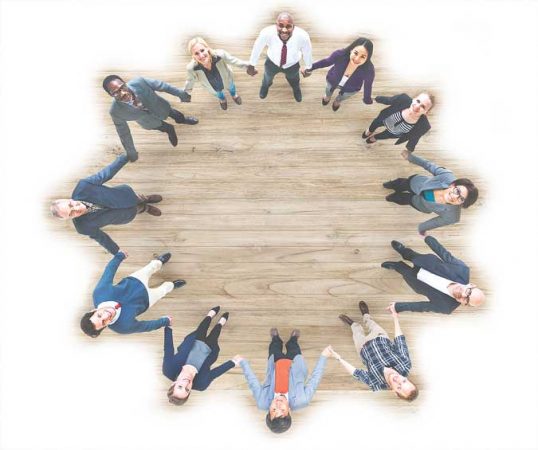
In this time of pandemic, the proclivity of societal responses to mitigate the ravaging impact of the crisis is carried out on three fronts — government’s effort to control the spread of infection, the private sector’s sensible reaction of saving and protecting human capital, and civil society’s endeavors to promote philanthropy and volunteerism.
Remarkably, the three fronts have been characterized by a degree or, at least, a tinge of collaboration between and among social actors. And in this health-cum-economic predicament, the imperative for a tri-focal arrangement to transform crises into opportunities and lay the foundations of national economic recovery has been exposed.
The recently concluded Session 1 of the Pilipinas Conference hosted by the Stratbase ADR Institute, dubbed “Rebooting the Economy Post-Pandemic: Cushioning the Long Emergency,” voiced a multi-dimensional and multi-stakeholder perspective as to how we could get back on our feet and prosper once again.
In terms of reviving the economy, Dr. Ernesto Pernia (former National Economic and Development Authority secretary and professor emeritus at the UP School of Economics) opined the need to ramp up government COVID-19 response and spending. This is in recognition of the underinvestment that our health infrastructure has suffered and the importance of boosting the capacity of our health system.
Further, he called on for a “unified effort toward the country’s development goal.” This means, according to him, to “foster or strengthen public-private partnerships a la bayanihan spirit” wherein “mutual trust and empathy” govern the relationship between the public and private sector, rather than being “adversarial.”
For Diwa Guinigundo (former deputy governor of the Bangko Sentral ng Pilipinas), he emphasized on what is called the “green shoots” or the “initial signs of economic activities” as the starting point of recovery. He then spoke on the issue of “restoring confidence” as the second proposition to strengthen the preliminary foundations for growth. The third proposition, he said, is “to manage the economic scars of lost jobs, lost income, and lost productivity.”
Dr. Raul Fabella (National Academy of Science and Technology and professor emeritus at the UP School of Economics), for his part, underscored the ever-growing importance of having an investment-led economy that could achieve the desired economic growth that a consumption-led economy has not. To achieve economic recovery, he clearly hints on the good economic performance associated with public-private partnerships in the last three decades. Besides, according to him, the private sector provides or fills in the gap where government’s “comparative competence” is absent or lacking.
From an academic perspective, Dr. Ronald Mendoza (Dean of the Ateneo School of Governance) highlighted the 3Ts as components of inclusive recovery, namely, “technology, trust, and transform.” According to him, technological applications cater to rapid testing, tracking, information sharing, and telemedicine; while “trust” pertains to the compliance with quarantine and willingness to share information; and “transform” refers to the need to alter our healthcare system to build a surge component and emphasize inclusion.
In his perspective, Dean Mendoza prioritizes the concern to boost the healthcare industry. He also expressed that together with Dr. Pernia they are “allies in terms of opening up the economy.” However, Dean Mendoza qualified: “But along with that opening up, we need to build stronger institutions, so that we don’t open up blindly and create the political pushback that will stop that opening up,” particularly referring to what he calls “questionable investments.”
Interestingly, the realities on the ground could be more challenging based on the subsequent discussions. What Dr. Mahar Mangahas (President, Social Weather Stations) and Dr. Ronald Holmes (President, Pulse Asia, Inc.) respectively talked about joblessness and economic optimism and robust democracy in this time of pandemic illustrates and describes the level of public opinion or what is referred to as people’s perspective or facts. Taken together, recovery from the pandemic should undoubtedly and seriously take into consideration the political-economic concerns of the people.
In their entirety, the discussions echoed what Ambassador Albert del Rosario (Chair, Stratbase ADR Institute) explained in his opening remarks about “strengthening collaboration for collective recovery.” Prof. Dindo Manhit (President, Stratbase ADR Institute) discussed in his closing remarks of Session 1 the definitive role of “paving the way for sustainable long-term investments.”
Done in a simultaneous and coordinated fashion, collaborative and transformative investments from the public and private sector on one hand, and from domestic and foreign sources on the other hand could serve as a resilient anchor for sustainable recovery.
The spirit of public and private partnerships emphasized by the economic thought leaders of the Pilipinas Conference is not just a point of intellectual assessment but an urgent call for synergy between government, private enterprises, and civil society to collectively attack this complex crisis and move toward recovery and sustainable growth.
Jaime Jimenez, Ph.D is the Deputy Executive Director for Research of Stratbase ADR Institute.
